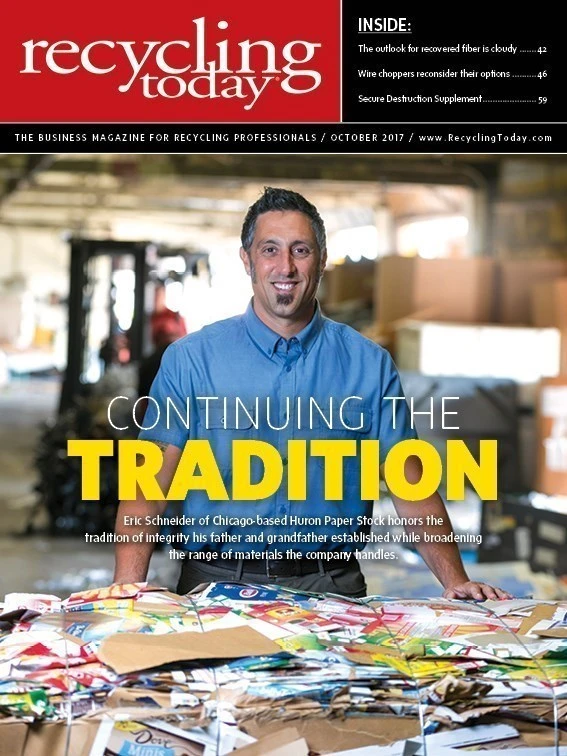
Analysts and staff members at the World Trade Organization (WTO), when researching whether China is making progress on establishing a market-based economy, may need to look no further than the basic materials sector to find some clues.
A report issued by the International Monetary Fund (IMF) in August lists the steel, aluminum and paper industries as among 10 industrial sectors in China that are “defined by low capacity utilization rates and a large share of firms incurring losses.” At the heart of the situation lie state-owned enterprises (SOEs).
The first three quarters of 2017 also witnessed a concerted effort by Beijing, on several fronts, to scrutinize, punish and even shut down companies with business models that rely on imported secondary raw materials.
The pretext has focused on environmental protection—a regulatory process China’s population supports, considering its air pollution and groundwater quality issues.
Conversations with recyclers affected by the crackdown, however, yield strong suspicions the inspections and license suspensions are targeted exclusively toward small-to-medium-sized and privately held companies. None can name an SOE that has been faced with a license suspension or shutdown.
The crackdown also appears to have focused only on scrap importers, with media reports and government press releases continually referring to imported scrap materials as “foreign garbage.” Efforts to collect recyclables within China do not seem to be facing the same finger-pointing and name-calling.
In the steel sector, the crackdown has shown a similar bias against small operators and scrap consumers. China has targeted small, scrap-fed induction furnace operators for closure, citing cleaner air as the reason. The large basic oxygen furnace SOE steel mills—bountiful smokestacks notwithstanding—appear to be escaping scrutiny.
In late July, the editorial board of the London-based publication The Economist expressed its concerns about the renewal of SOE boosterism in China, writing, “With their opaque finances and domestic privileges, Chinese SOEs are easily accused of having unfair advantages when they venture abroad.” The essay also says evidence shows SOEs “underperform private businesses” and are a “principal culprit in the buildup of corporate debt in China.”
The word “opaque” points to another reason to be skeptical about China genuinely striving toward market economy status. Company owners whose business models are collapsing because of sudden inspections and resulting punishments cannot be certain whether environmental enforcement is genuinely the reason or whether a hidden policy is to blame.
What is more certain—and concerning—is that a generation of entrepreneurs in the basic materials sector in China is beginning to lose hope. If they are convinced there are larger forces working against them, these entrepreneurs likely will seek opportunities elsewhere—either beyond recycling or beyond their own borders.

Explore the October 2017 Issue
Check out more from this issue and find your next story to read.
Latest from Recycling Today
- Phoenix Technologies closes Ohio rPET facility
- EPA selects 2 governments in Pennsylvania to receive recycling, waste grants
- NWRA Florida Chapter announces 2025 Legislative Champion Awards
- Goldman Sachs Research: Copper prices to decline in 2026
- Tomra opens London RVM showroom
- Ball Corp. makes European investment
- Harbor Logistics adds business development executive
- Emerald Packaging replaces more than 1M pounds of virgin plastic





